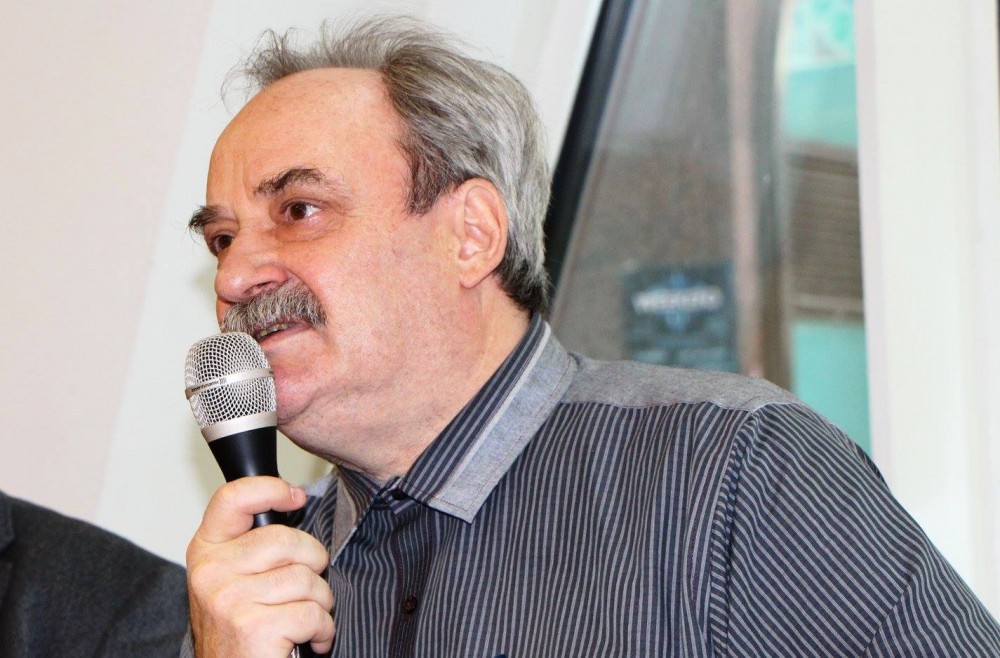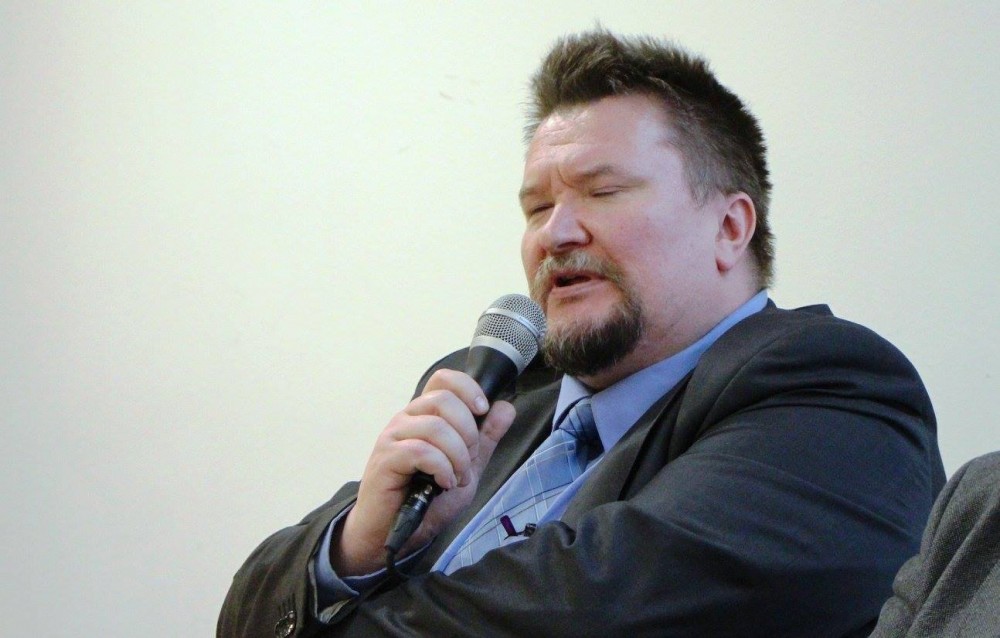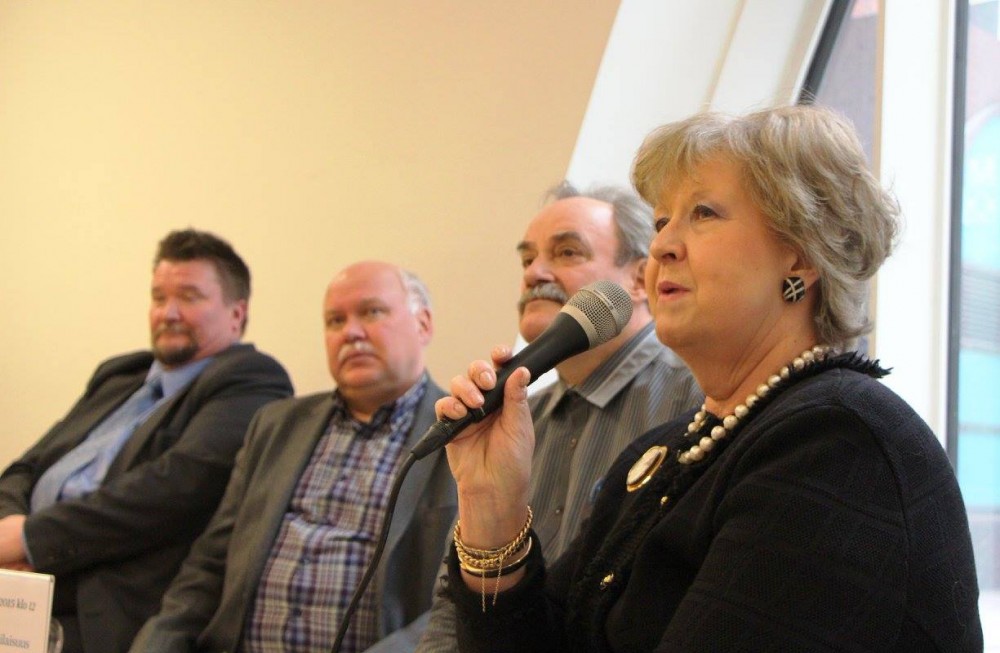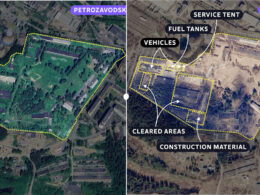A group of Finnish commentators has published a collection of articles analysing Finland's position as Russia's neighbour and the impact of Russian networks of influence within the country. The book, Lustraatio (Lustration), highlights the need for a process of political purification in Finland.
The word "lustration" stems from the Roman purification ritual (lustrum) and usually refers to the purge of government officials once affiliated with the totalitarian regimes in Central and Eastern Europe. Lustration signifies accountability for past human rights abuses, corruption, and injustice.
Having fought against Soviet aggression in the Second World War, Finland managed to avoid occupation, but was forced to cede a large part of its territory, including its second-largest city, Vyborg, in a peace treaty with the Soviet Union. Moscow went on to have a significant and corruptive influence on Finnish foreign and domestic policies throughout the Cold War period.
The book presentation was held in Helsinki on 2 March 2015. At the presentation, discussion centered on Finland's troubled relationship with first the Soviet Union and then the Russian Federation. The book's authors noted that Finland had failed to rid itself of an acquiescent attitude toward Moscow, which during the Cold War era came to be called "Finlandisation."
Finlandisation means the influence that the Soviet Union exerted on Finland during the Cold War
Finlandisation (from the German "Finlandisierung") is a term that originated in West German political debate in the 1960s and 1970s. The term refers to the influence that the Soviet Union exerted on Finland during the Cold War. The Finnish political cartoonist, Kari Suomalainen, once explained Finlandisation as "the art of kowtowing to the East without mooning the West."
While originally describing Finland's relations to its powerful neighbour, Finlandisation came to have a profound influence on Finnish society. Indeed, many Finnish politicians found it easy to collaborate with the Soviets to further their own careers. Furthermore, Finlandisation manifested itself as self-censorship and openly pro-Soviet attitudes, particularly in the media and cultural life.
The Soviet Lieutenant General, Viktor Vladimirov, who had been head of the "wet operations" (assassination) section of the Soviet secret police, the KGB, did several rounds as a diplomat at the Soviet Embassy in Helsinki, managing to befriend more than one Finnish president and scores of leading politicians and opinion makers. Many members of the Finnish political elite courted his favour.
Information obtained from the so-called Mitrokhin Archive suggests that the KGB offered money to the former head of the Finnish security police (Supo) in exchange for his cooperation. The funds are said to have been channeled to the coffers of Finland's ruling Centre Party. Also, Moscow bankrolled the Finnish Communist Party up until the party's bankruptcy at the end of the 1980s.
At the book presentation, retired top diplomat Marjatta Rasi recounted the peculiarities of Finlandisation in Finnish diplomatic service. In her words, Finlandisation came about due to Finns' traditional appeal to authority. Today, Finns were still clinging to a "daydream" that we lived in a world inhabited by good people and that no one was threatening us, Ms Rasi said.

One of the book's co-authors, translator and Russia expert Jukka Mallinen, said he wanted to investigate the Finnish historical psyche, which had been damaged by Finlandisation. Finnish acquiescence to the Muscovite empire began when Finland was an autonomous region within the Russian Empire, and it had resurfaced again after Russia's Vladimir Putin came to power, Mr Mallinen said.
The Finnish author, Paavo Haavikko, once said that Finlandisation was tantamount to "mental occupation," and that opportunism was at the core of Finnish mentality. Another Finnish author, Arvo Salo, said Finns wished to please and admire those who humiliated them. Mr Mallinen said this was akin to the "Stockholm Syndrome," where hostages begin to sympathise with their hostage takers.
Another of the book's co-authors, journalist and documentary film maker Martti Puukko, said Finland's relatively independent position during the Cold War was an object of envy in Communist-controlled Central and Eastern Europe. However, no former member of the "socialist camp" stayed "Finlandised" after the fall of Communism; the only country that did so was Finland itself, he noted.

The book's third co-author, university lecturer and Russia expert Arto Luukkanen, said Finlandisation was based on an attitude of "infantilism," which held that "the elite knows better, and people need not know." However, he expressed confidence that the new generation of Finns would not accept the old putrid "truth." Finnish society was in need of factual, independent information, and balanced analysis. "We can no longer be led astray," he stated.
Mr Luukkanen, who was standing as candidate in Finland's upcoming parliamentary elections, proposed the establishment of a "truth commission" to investigate the Soviet networks of influence in Finland during the Cold War era. People needed to be able to tell what they did during the Cold War. This was important for due process, he pointed out.
Regarding the current discussion about the events in Ukraine, Mr Luukkanen noted that Finland's "Quisling movement" had raised its ugly head again. He said an "academic lobby" was spreading pro-Kremlin propaganda and disinformation under the guise of scientific research, while political "retrosauri" such as Finland's former foreign minister, Paavo Väyrynen, were making a comeback, using rhetoric that was a throwback to the worst era of Finlandisation.
Mr Puukko has studied the process of lustration in Poland, where there has been a sober recognition of the opportunities for blackmail and extortion that connections established during the Communist era may have opened. In this context, retired top diplomat Alpo Rusi reminded that "high-level contacts" forged during the Cold War held back Poland's political development and foreign policy reform in the 1990s.
In Mr Mallinen's words, the "fossilised thinking" and clichés of the era of Finlandisation lived on to this day, preventing Finland from making use of her freedom and from defending her national interest, particularly in issues related to security policy. Mr Rusi said the rejection of an open discussion on security policy could be linked to the failure to deal with the history of Finlandisation.
Finland's historical "special relationship" with Moscow has given rise to a peculiar sensitivity in relation to Russia's intelligence activity. Seppo Tiitinen, who was head of Supo during much of the Cold War period, has warned against digging into the "scrap heap" of Cold War operatives in Finland. Officially, Supo has never caught a single mole within its ranks in its entire post-war history.
Mr Rusi recalled that Supo classified a list of the Finnish contacts of East Germany's notorious secret police, the Stasi. KGB defector Oleg Gordievsky has named Finland's long-time foreign minister, Kalevi Sorsa, as a top-level contact of the KGB. However, this information has been largely ignored in Finnish public debate. In Finland, people in high political posts seemed to enjoy immunity; they were above suspicion and investigation, Mr Rusi stated.
There have been several cases within Finland's political and academic elite that would certainly warrant further investigation. In a small country like Finland, the emergence of networks of protection, as well as of political, personal, and sexual relations, is commonplace inside the political elite. These connections create an opportune environment for dubious intelligence activities.
Given the recent deterioration of the international situation, particularly after Russia's military aggression against Ukraine and annexation of Crimea, Finland's status as a non-NATO member in Russia's periphery has attracted attention. As the strategic importance of the Baltic Sea region was rising and Russia's intelligence activity increasing, highlighting the security implications of Moscow's networks of influence throughout Europe was of the utmost importance.
Mr Luukkanen said identifying the Russian networks in Finland was important, given that, in Moscow's eyes, Finland was part of the Soviet and now Russian sphere of influence. It was important to underline the importance of maintaining and defending Finnish sovereignty, he said. Mr Puukko noted that Russia was demonstrating a strong tendency toward rebuilding its former empire.
Mr Mallinen pointed out that Russia was waging information war in Finland just like it was doing elsewhere in Europe. Given the progress that it had made, Russia was likely to continue pushing forward on this front. Russia's plan was to turn Finland into Moscow's "Trojan Horse" within the European Union, and that is why Russia strove to dominate the information space in Finland, Mr Mallinen warned.
Unfortunately, Finland has so far failed to take even the first step that many former socialist countries — Ukraine being the latest — have taken to clear up the murky spots in their recent past. In the current situation, this has manifested itself in a failure to recognise the fact of Russia's aggression against Ukraine and willingness to accept the Kremlin's propaganda regarding the events in Ukraine.
Mr Mallinen revealed that officials at Finland's Foreign Ministry had been prohibited from using the term "war" when reporting on Russia's invasion of Ukraine. Instead, they were instructed to speak of a "crisis." Finland's Foreign Minister, Erkki Tuomioja, lambasted comments critical of Russia's role in Ukraine by Torsti Sirén, then head of the Finnish National Defence University's Strategy Department.
Master of Military Science, Captain Atte Kaleva, noted that lustration was badly needed in Finnish Defence Forces as well. He recalled peculiar statements by the EU's military intelligence chief, Admiral Georgij Alafuzoff, who at the beginning of the Russian occupation denied that there were Russian troops in Crimea. "Finns kept spouting the same rubbish even after Moscow had admitted that its troops had indeed entered Ukraine," Mr Kaleva said.
Asked about the relevance of the situation in Ukraine to Finland and Europe, Mr Mallinen noted that Finland was part of the same reference group — non-NATO members bordering on Russia: Finland, Belarus, Ukraine, Georgia, and Azerbaijan. Russia's war against Ukraine threatened stability and freedom in the whole of Europe. Ukraine was just the first step, he warned.
Mr Puukko agreed with this assessment, saying that what was now happening in Ukraine was a serious threat to all of Russia's neighbours, including Finland. Mr Rusi pointed out that Russia had always been a very problematic neighbour for Finland. "The only period in Finnish history when we did not have problems with Moscow was in 1991-1998," Mr Rusi said.
Mr Luukkanen said the Russian invasion destroyed the possibility for European cooperation and economic growth. It created new Cold War barriers between nations and peoples, which was the most tragic consequence of the war. The invasion destroyed relations not only between Russians and Ukrainians, but between Russians and other Europeans as well, Mr Luukkanen said.
Read more: http://lustraatio.fi/lustration
[hr]Kerkko Paananen is the Press Secretary at Lustraatio.fi






